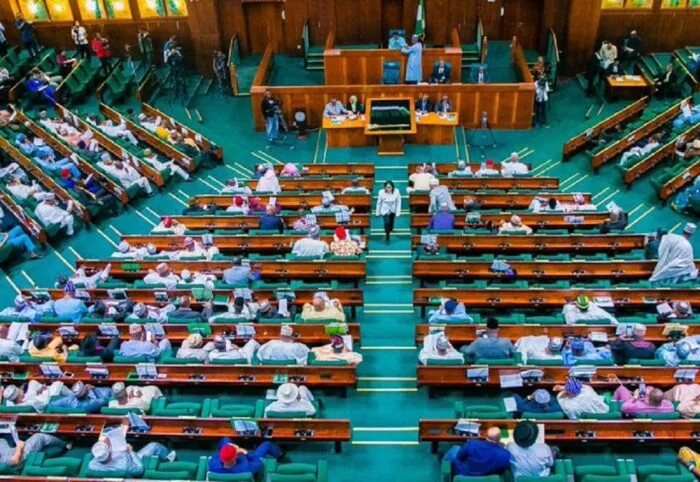Nigeria
House of Reps moves to resolve FG, Disagreement within ASUU about overdue pay

The Academic Staff Union of Universities (ASUU) and the Federal Government are still at odds over unpaid salaries for eight months. The House of Representatives has decided to step in and resolve the dispute.
The resolution followed the plenary session on Thursday’s unanimous passage of a motion proposed by Rep. Paul Nnamchi (LP-Enugu State) and co-sponsored by Reps. Aminu Jaji (APC-Zamfara), Julius Ihonvbere (APC-Edo), and Lilian Orogbu (LP-Anambra).
Nnamchi, who made the motion, stated that university instructors are essential to the educational process because they provide aspiring leaders with information, direction, and mentorship.
According to him, the growth of educational institutions depends on having a steady and driven academic personnel.
Read Also: An investigation into the August 76-person Johannesburg fire has begun in South Africa
The legislator stated that ASUU, a certified association of academic professionals in Nigeria, is dedicated to improving research and teaching in higher education.
He cited the eight-month strike that ASUU members embarked on in 2022 as a result of the Federal Government’s disregard for previous agreements with the union.
According to Nnamchi, dedicated academics who took part in the strike unintentionally suffered financial implications as a result of the structural faults that the strike was intended to address.
According to Section 17 of the Constitution, the state’s social order is based on the principles of justice, equality, and freedom, and government actions must be compassionate in order to promote these goals.
“Disturbed that lecturers at Federal University are suffering financially and that the eight months of unpaid pay they are owed as a consequence of the ASUU strike will negatively impact students’ educational opportunities and general well-being.”
Concerned that unpaid salaries may have a detrimental impact on instructors’ morale, job happiness, and ability to teach, which may lower the standard of instruction given to pupils.
“There is a close relationship between kids’ educational possibilities and achievement and the stability of instructors’ careers and income.
“The nation’s economy, the welfare of educators, and the stability and quality of universities all depend on finding a solution to this issue,” he declared.
The Speaker of the House, Representative Tajudeen Abbas, ordered that ASUU and the federal government communicate with the Committees on University Education, Finance, Appropriations, Labour and Productivity, and Legislative Compliance.
In accordance with the “no work, no pay” policy, he gave the committee the task of resolving the lecturers’ eight months of unpaid wages and reporting back for additional legislative action in two weeks. NAN
